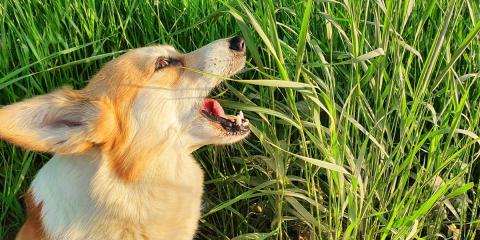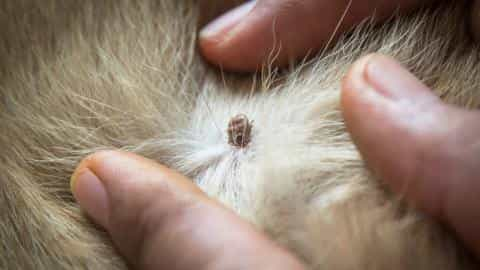
Published on March 5 by Julia
Many dog owners have observed their pets munching on grass, only to vomit shortly afterward. This behavior can be puzzling and even concerning. While it might seem like a sign of illness, in most cases, it is a natural and relatively harmless behavior. Understanding why dogs eat grass and vomit can help pet owners determine whether it's normal or if it signals an underlying health issue.
Dogs are descendants of wild canines, which had a diverse diet that sometimes included plants. Some researchers believe that grass-eating is an instinct carried over from their ancestors, who may have consumed plant matter to aid digestion or expel parasites.
Some experts suggest that dogs eat grass to supplement their diet. If a dog lacks certain nutrients, such as fiber, they may instinctively seek out plant material to compensate. However, there is little scientific evidence supporting this theory, as most modern dog foods provide balanced nutrition.

Just like humans may engage in habits like nail-biting when bored or anxious, dogs may eat grass as a coping mechanism. Dogs left alone for long periods or without enough mental stimulation may turn to grass-eating out of boredom.
One of the most common beliefs is that dogs eat grass to induce vomiting when they feel unwell. While this is not always the case, some dogs may instinctively eat grass to clear their stomach of something irritating. However, studies have shown that less than 25% of dogs vomit after eating grass, suggesting that vomiting is not always the goal.
Some dogs may eat grass simply because they like the taste or texture. If a dog regularly eats grass but does not vomit or show signs of distress, it may be nothing more than a personal preference.
Not all dogs vomit after eating grass, but when they do, it may be due to:
While occasional grass-eating and vomiting are typically harmless, you should consult a veterinarian if:

Eating grass and vomiting is a common behavior in dogs, and in most cases, it is not a cause for concern. However, if the behavior becomes excessive or is accompanied by other health issues, it is best to seek veterinary advice. By understanding the reasons behind this behavior, pet owners can ensure their dogs remain happy and healthy.
Discover More Content





